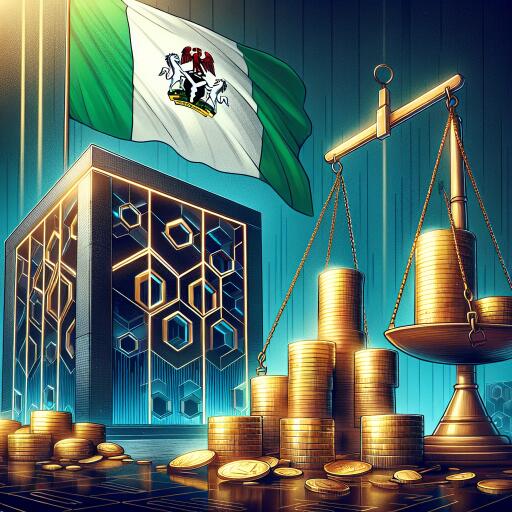Binance Responds to Nigeria Demanding $10 Billion Penalty
In a recent turn of events, the global cryptocurrency exchange Binance has addressed claims concerning a demand from the Nigerian government for a penalty that overshadows even that of the United States. Reports surfaced that the Nigerian government had proposed a staggering fine of up to $10 billion, a claim that Binance swiftly denied.
“We recently discussed ways to resolve issues with Nigeria, but we have not heard any requests for $10 billion,” a Binance official disclosed to Peoples Gazette. This statement was in direct contradiction to earlier reports where a government spokesperson suggested to the BBC that such a fine was under consideration.
Binance, headquartered in the Cayman Islands, emphasized its commitment to establishing a harmonious relationship with both the Nigerian government and its people. The cryptocurrency giant clarified it has no intentions of complying with any demands for payment to either revive its ceased services or for the release of executives accused of engaging in activities that contributed to the naira’s volatility.
“Our goal is to establish a good relationship with the Nigerian government and people. We would like to see our services restart in Nigeria very soon, but we have no intention of paying penalties for staff or services,” highlighted the Binance spokesperson.
In a subsequent clarification, President Bola Tinubu’s media aide, Bayo Onanuga, communicated to the BBC that previous statements regarding the fine were misconstrued by the media. Onanuga specified that there had been no final decision on the imposition of the fine nor had Binance been officially notified about such a penalty.
“I said that our government could impose heavy fines on Binance for what happened. I never said that Binance was informed about the fines or that it would definitely be 10 billion dollars. I only said that the amount could be applied, because nothing has been finalized yet,” Onanuga explained, hinting at ongoing uncertainties regarding the fine.
Further, Onanuga accused Binance of facilitating activities detrimental to the Nigerian economy. He alleged that the platform supported individuals who manipulated the Nigerian exchange rate, exacerbating economic instability at a critical time for the country.
This incident isn’t the first time the Nigerian government has been entangled in controversies over negotiations and statements. Similar misunderstandings arose following discussions with the United Arab Emirates concerning the lifting of travel restrictions, where premature announcements stirred confusion and potentially hindered the negotiation process.
The contention surrounding Binance and the Nigerian government underscores the complexity and evolving nature of the relationship between cryptocurrency entities and national regulators. As the situation develops, stakeholders within the cryptocurrency space, as well as observers of Nigeria’s economic policies, will be keenly watching how these negotiations unfold, hopeful for resolutions that favor both technological innovation and economic stability.
